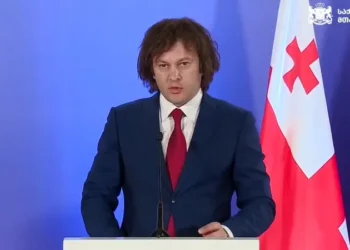I have received disturbing reports about police violence against the participants of mass protests in Georgia. I call on the government to respect the right to freedom of peaceful assembly, – Gina Romero, UN special rapporteur on the right of association and freedom of assembly, wrote on social media.
“I am receiving disturbing reports about the violence of the police against the participants of the mass protests in Georgia, which followed the decision to postpone Georgia’s negotiations with the European Union. I call on the government to respect the right to freedom of peaceful assembly and to stop using less lethal weapons. We are closely monitoring Georgia,” the UN special rapporteur wrote.
Romero points out that, according to international standards for the protection of the right to protest, states and law enforcement agencies are obliged not to impose excessive restrictions and not prevent peaceful assembly. They should promote peaceful assembly, including protests, by ensuring that protestors carry out their activities without discrimination or harassment.
“The information I am receiving about the targeted use of pepper spray in the faces of protesters, as well as the use of a combination of water jets and chemical irritants, is particularly disturbing. Commentary 37 on the right to peaceful assembly clearly states that “less lethal weapons with a wider area of effect, such as tear gas and water cannon, are generally characterized by indiscriminate effects. When using such weapons, all reasonable efforts should be made to minimize the risks, and such weapons should only be used as a last resort, after a verbal warning and when participants in the assembly have been given an adequate opportunity to disperse,” Romero notes.
She claims that UN guidelines on the use of less lethal weapons by law enforcement agencies state that water cannon and tear gas can be used against groups, not individuals.
“The firing of irritating projectiles (tear gas) against individuals should generally not happen. In any case, projectiles should not be fired at the head or face due to the risk of death or serious injury. In addition, the guidelines state that in cold weather (especially if the water is not heated), the water jet can cause hypothermia and cold water shock. To meet the requirements of necessity and proportionality, the use of water jets must be carefully planned and implemented with strict command and control at the highest level,” states Gina Romero.
Related story: Michael Roth: the regime in Georgia is waging a war against its own people – our common values are under threat














